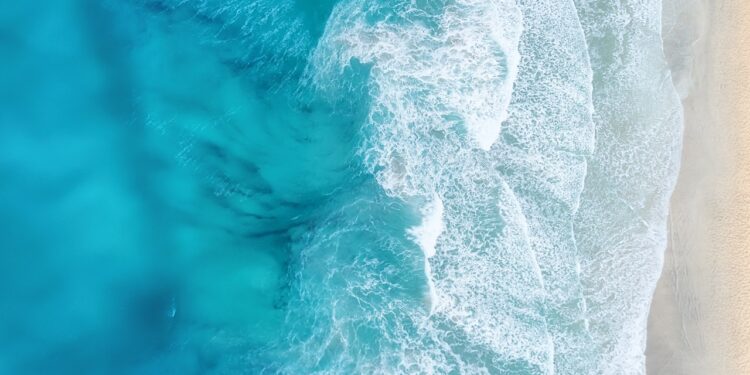What is Marine Water Pollution?
The maritime industry contributes 3% of the world’s carbon emissions annually, resulting in marine water pollution. In its effort to help protect the environment, it is necessary for the maritime industry to lower its carbon footprint and provide sustainable marine water solutions.
Marine water pollution is when industrial, agricultural and residential waste enters the ocean, causing harm to marine life and the ecosystem. Due to ingestion and entanglement, single-use plastic is one of the leading causes of injury and death to marine species. Over fourteen million tons of plastic enter the world’s oceans every year, contributing to 80% of all marine debris.
Marine pollution also damages human health, coastal tourism, and adds to the effects of climate change. Marine debris includes waste such as plastic bags, fishing gear, and plastic bottles. Due to the breakdown of plastic particles in the ocean, microplastics are now found deep in the ocean and in marine life.
What are Marine Water Solutions?
Marine water solutions range from clean drinking water for crew on vessels, to water for boilers and cooling systems. They are an essential part of the successful operation on all ships in the maritime industry. In an increasingly polluted world, it is important to provide environmentally friendly water solutions so that the world’s oceans can return to a healthy condition.
Eliminating the use of single-use plastics is the first step to reducing waste and protecting the environment. By saying no to disposables and plastics, the maritime industry is already reducing its carbon footprint and helping save marine life. By using eco-friendly products and materials, the world’s oceans will be healthier and more sustainable for future generations. Replacing single-use onboard essentials with biodegradable or reusable options is a step towards a cleaner planet.
Installing durable water solutions removes the need for plastics and results in a greener alternative. Replacing plastic water bottles with stainless steel water bottles is gentler on the environment and cost-effective in the long run. It is essential to provide seafarers with clean drinking water. The method of reverse osmosis is now used in modern desalination systems, providing fresh water for crew and passengers. This purifies the water by filtering out unwanted particles and contaminants, delivering a constant supply of safe water to drink. Previously, the use of plastic bottles loaded onto a vessel was commonplace. However, modern methods allow for clean water to be produced onboard the vessel.
What are the Benefits of Marine Water Solutions?
The elimination of single-use plastic is a fundamental step forward in sustainable practices for the maritime industry. These new methods of providing clean water onboard ships offers both an eco-friendly and cost-effective alternative to plastics, whilst helping to protect the world’s oceans. Taking care of the environment and reducing the impact of water pollution on marine life is vital for a healthy and sustainable future.
Providing clean water is essential in the operation of every vessel in the maritime industry. The importance of creating a more sustainable future and protecting the natural environment has urged the maritime industry to make positive changes. Providing safe water to seafarers and passengers is vital, and modern water treatment methods allow for the reduction of waste. By eliminating plastics, there is no need for barges to lift pallets of single-use plastic goods onto the vessel, reducing the marine industry’s carbon footprint. Providing stainless steel water bottles is a greener alternative to plastic bottles, reducing waste pollution on every vessel. These changes will have a positive effect on the ocean by lowering the level of plastics entering its ecosystems and as a result, reducing the harm caused to marine life.
Clean, safe water improves the physical and emotional wellbeing of crews at sea. Purification of water removes contaminants and harmful impurities such as chlorine, whilst also eradicating heavy metals. Certain minerals – calcium, zinc and magnesium – are important for the health of seafarers, and the filtration process leaves these behind.
Reducing plastic water bottles is both cost-effective and improves customer trust in the maritime industry. Conservation awareness is growing, and people understand the importance of protecting the planet in today’s world. As the effects of climate change become more prominent and the need for more sustainable solutions ever more pressing, vessels across the world must work with partners to improve their waste management.
Final Thoughts
Is it possible to reduce marine water pollution by introducing marine water solutions?
Due to technological advances, improvements in water purification systems, and conservation awareness, reducing water pollution is possible for a more sustainable future. It is essential to reduce plastic waste and eliminate the use of plastic bottles, to ensure a healthier environment for marine life. The maritime industry has an important role to play in implementing environmentally responsible practices onboard vessels.
Water plays a significant role in the fight against the climate crisis. One of the UN Global Goals is to ensure everyone in the world has access to clean water and sanitation. Good water quality is crucial for the health of humanity and the ecosystems we are a part of. If, by 2030, we are to improve water quality by reducing pollution, it is essential that the maritime industry adopts sustainable practices. Installing onboard desalination systems and replacing plastic bottles with stainless-steel water bottles is an effective way to make positive change.
The maritime industry relies on water to transport goods across the world, whilst needing to provide clean drinking water for seafarers and passengers. If operations at sea are to be environmentally sustainable, the maritime industry must implement eco-friendly ways of providing clean water for all those onboard vessels. This includes drinking water, water for showering, and water used in boilers and cooling systems. Marine water solutions are an answer to reducing the use of plastics, which pollute the oceans and harm marine life. The industry is adopting these greener methods and working towards minimizing ship waste, therefore reducing water pollution which will result in healthier oceans around the world.










